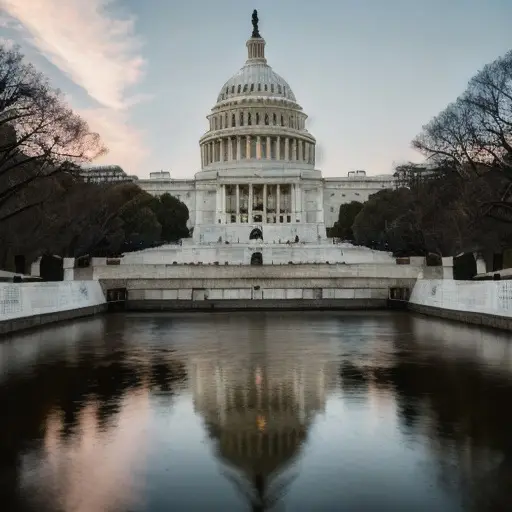
If Congress and the White House are unable to reach an agreement on a CR, the government will shut down on October 1, 2023. This would have a significant impact on the economy and on millions of Americans.
Here are some of the potential impacts of a government shutdown:
- Federal employees would be furloughed, meaning they would not be paid for their work. This would affect millions of Americans, as many federal employees are essential workers who provide important services to the public.
- Federal programs and services would be suspended or delayed. This could include everything from national parks to food safety inspections.
- The economy would be negatively affected. A government shutdown would reduce consumer spending and investment, which could lead to job losses and a recession.
A government shutdown can impact immigration in a number of ways, depending on which agencies are affected and how long the shutdown lasts.
US Citizenship and Immigration Services (USCIS) – USCIS is a fee-funded agency, so historically, it has continued to operate normally during a government shutdown. A government shutdown should not impact filing, receipting, biometrics, interviews and so on. In the past, USCIS has continued to process most applications and petitions during government shutdowns, but there have been some delays. For example, during the 2013 shutdown, USCIS processing times for some applications increased by up to 50%. If a government shutdown is prolonged, USCIS may have to make some difficult decisions about which applications and petitions to prioritize. For example, USCIS may focus on processing applications for essential benefits, such as green cards and citizenship, while delaying processing of other applications, such as those for work visas. It is important to note that the impact of a government shutdown on USCIS operations is not always clear until the shutdown is underway. USCIS has released guidance on how it will operate during a shutdown, but this guidance may change depending on the circumstances.
Department of Labor (DOL) – On the other hand, the DOL is not fee-funded, so its immigration functions are typically suspended during a government shutdown. This includes processing labor condition applications (LCAs), PERM labor certification applications, and prevailing wage requests. This can have a significant impact on employers who are seeking to sponsor foreign workers for H-1B, H-1B1, and E-3 visas. The DOL has also issued guidance on how it will operate during a government shutdown. This guidance states that the DOL will continue to provide essential services, such as investigating workplace safety violations and enforcing wage and hour laws. However, all other DOL functions will be suspended during a shutdown.
Department of State (DOS) – The DOS is responsible for issuing visas to foreign nationals who want to visit or immigrate to the United States. Visa processing is typically not affected by a government shutdown, as the DOS is able to use its own fees to fund these operations, and these fees are generally paid by customers. However, there could be some embassy-related delays in processing visas, particularly for non-essential travel. In the past, DOS has continued to process most visa applications during government shutdowns. However, there have been some delays. For example, during the 2013 shutdown, DOS processing times for some visa applications increased by up to 20%.
ICE (Immigration and Customs Enforcement) – Unfortunately, ICE does not completely shut down during a government shutdown as the agency is considered essential. However, some of its operations may be affected and ICE has to focus on the most serious cases, such as those involving national security or public safety threats. E-verify is not operational during a government shutdown. Historically, during prior government shutdowns, ICE enforcement and removal operations continued, but ICE Student and Exchange Visitor Program (SEVP) offices were closed.
Customs and Border Protection (CBP) – Border protection continues to operate during a government shutdown as the agency is considered essential. However, there may be some delays and disruptions to border operations during a shutdown. For example, agents may be working with reduced staff and resources. Additionally, some non-essential border operations, such as construction and maintenance projects, may be suspended.
Other agencies – Other federal agencies that play a role in immigration, such as the Department of Homeland Security (DHS) and the Executive Office for Immigration Review (EOIR), may also be affected by a government shutdown. This can lead to delays in immigration enforcement and removal proceedings. During a government shutdown, EOIR will cease all non-essential operations, including all non-detained immigration court hearings and new filings. This can have a significant impact on individuals who are facing removal, or other immigration proceedings. In the past, EOIR has continued to process some essential cases, such as credible fear reviews and cases in the Family Expedited Removal Management (FERM) program. However, these cases are typically limited in number and scope. Individuals are advised to seek information about EOIR directly from the agency.
Overall, a government shutdown can have a significant impact on immigration, both for individuals and businesses. It is important to be aware of the potential consequences of a shutdown and to plan accordingly. If you are concerned about how a government shutdown may affect your individual immigration case, you should contact an immigration attorney for advice.
Share this:
- Share on Facebook (Opens in new window) Facebook
- Share on X (Opens in new window) X
- Share on LinkedIn (Opens in new window) LinkedIn
- Share on Tumblr (Opens in new window) Tumblr
- Share on Pocket (Opens in new window) Pocket
- Email a link to a friend (Opens in new window) Email
- Print (Opens in new window) Print
- More
